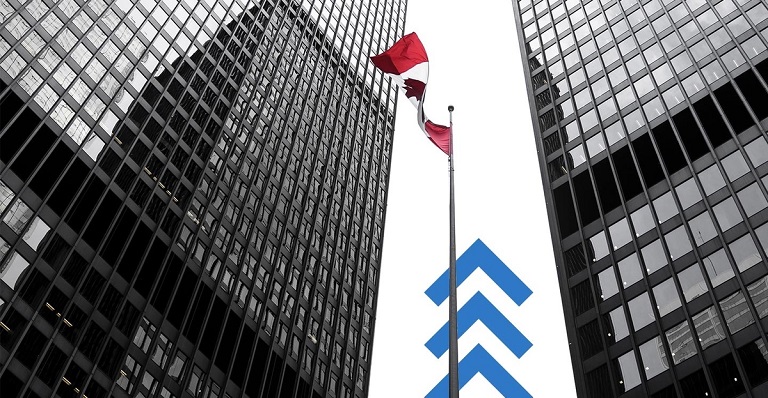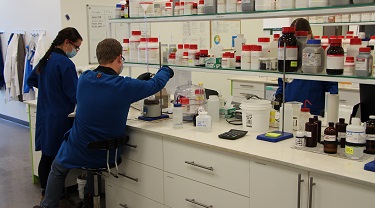At the start of the year, no one could have predicted how the coronavirus would have an unprecedented impact across the globe, leading to human suffering and massive economic disruption. The abrupt halt to travel and strict social distancing measures have had a substantial effect on most businesses. During this period of increased uncertainty, it’s crucial that companies assess and mitigate the emerging risks of financial crimes, particularly fraud and corruption, when conducting business.
The global pandemic shackled businesses and activities across almost every sector. Shortages of essential supplies were only the tip of the iceberg. The hidden side included the dearth of raw materials, reduced capacity and production discontinuance in China, then all over the world.
Evolving fraud and corruption
Shift of business model without appropriate risk management process
When COVID-19 struck, businesses faced hard choices and urgent decisions had to be made, including:
- the pressing redirection of supply chains, either locally or offshore;
- shifting distribution model from “warehouse-to-store” to “warehouse-to-customer” or
- switching from in-store to online.
You should also check out
Your company could become involved in financial crime without even knowing it. Learn about the risks and how to manage them in this detailed guide.
Rushing into those decisions hastily without proper due diligence at the onboarding stage and adequate risk assessment may result in working with disreputable or restricted parties. This could make a business more vulnerable to disruptions, legal implications and reputation risks.
While many companies are clamouring to launch comprehensive digital transformations to optimize opportunities, it’s best to take your time to make sure that the proper safeguards, controls and cybersecurity training are in place.
Cyber-attacks, data corruption and misuse of collected data are amplified and eased by the weakness of home technology, scarcity of resources and the tremendous increase in breach attempts during the pandemic.
Increase of incentives to commit fraud and make corrupt decisions
The fraud triangle, or fraud framework explaining the behaviour and motivation behind committing fraud, sets three risk factors:
- Pressure
- Opportunity
- Rationalization
The line between trusted persons and violators can become thin and easily transgressed as pressures increase and controls weaken due to COVID-19, fostering justification for previously unthinkable actions.
Under the pretext of saving their company from financial distress and liquidity problems, upper management may impulsively make corrupt decisions or even deliberately manipulate financial statements to meet stakeholders’ expectations.

On the other hand, relaxed internal controls due to necessary changes in processes, layoffs or remote work, combined with a fear of being laid off or a misguided rationale that “there’s no other option,” might motivate some employees to commit fraud, especially if their income and livelihood are at risk.
Increased risk in emergency procurement processes
According to the Organisation for Economic Co-operation and Development’s (OECD) guide, Preventing Corruption in Public Procurement, public contracts are considered as at high risk for corruption, especially in high-risk countries and monitored jurisdictions. Corruption and integrity risks are exacerbated by the complexity of the process, the close interaction between public officials and businesses, and the multitude of stakeholders.
Under pressure of the public health emergency to deliver essential goods and services in greater volume and speedier timeframes, many jurisdictions may choose to simplify and relax due procurement processes. This can potentially lead to integrity violations by posing risks of fraud such as onboarding shady or fake suppliers, over-invoicing, corruption and other illegal and unethical behaviours.
Enforcing the proper integrity and transparency safeguards
Ensure a risk-based approach to good governance, business integrity and internal controls
While shifting your business model to adapt to the reality of COVID-19, you should ensure that your enterprise risk management system includes the necessary risk control measures and adequate guardrails to prevent fraud and corruption at a strategic, tactical and operational level. Reviewing your organization’s risk appetite and being aware of its risk profile will enable you to develop and maintain good governance, appropriate mitigation strategies and internal controls.
For this purpose, using a proportionate and risk-based approach will ensure that the risks are identified, evaluated and controlled, and that your resources are well-allocated and assigned to where they’re needed most. The risk-based approach (RBA) should also consider other factors, including law and regulations, your stakeholders’ expectations, technology, available resources and the maturity of processes.
You should also check out
Find out how your company can manage risk and stay the course during these challenging times.
Internal controls and due diligence processes shouldn’t be overlooked or considered a one-time task. They’re an ongoing exercise that covers all of your company’s key activities, according to the RBA and your risk appetite. Taking proactive steps to address the risks of COVID-19 and conducting the required due diligence in a way that mitigates adverse impacts associated with operations are the gateway to staying the course and preserving value.
Advance the right culture and right values in your organization
Operating with a thorough risk culture—a culture that defines your company’s value, ethics and integrity—has never been more critical than during this crisis. A fraud management system will never be successful if it isn’t properly executed and the people who use it have to be aware of its value.
Mindsets and behaviours of individuals and groups inside the organization, either visible or invisible, play a central role in the execution of your business strategy. Starting from the top, your company’s risk culture should be at the heart of your fraud risk management strategy.
To set a strong tone, senior management should lead by example and make sure that risk and compliance rules are comprehensive and widely applied. All managers should receive risk management education and training, execute and enforce the risk management policies, as well as make sure communication regarding risk and integrity is continuously and effectively flowing from the top down.
Inclusive risk culture means that employees have a clear understanding of the company’s values and the boundaries within which they can operate. To do that, you should implement the necessary channels and processes to enable them to freely engage in risk discussions and raise issues, whether directly or anonymously.
You should also check out
Adopt a responsible business conduct approach
Fraud prevention shouldn’t be limited to company boundaries. It needs to positively impact the company’s environment and actively engage your stakeholders. By adopting a responsible business conduct (RBC), your risk policies will be shared and understood by your partners and your company’s action will reflect your integrity and publicly promote your ethics and values.
As stated in Global Affairs Canada’s Responsible Business Conduct Abroad guide, responsible corporate behaviour not only enhances your chances for business success, but can also contribute to broad-based economic benefits for the countries in which you’re active.
The OECD Due Diligence Guidelines for Responsible Business Conduct can be the first step in your journey toward strong self-regulatory framework and good corporate governance by helping you address the environmental, social and governance issues arisen and worsen by the crisis.
But it’s important to point out that there isn’t “one best way.” This long-lasting pandemic has proven it’s important to continuously evaluate your risk culture and make necessary adjustments to strengthen your resiliency and to act responsibly and transparently to ensure that everyone is evolving in healthier and trustworthy markets.
You have questions—we have answers!
Work with one of EDC’s experienced trade experts on our Export Help team to get answers about choosing an international market, finding customers, clearing customs, navigating tax requirements, conducting due diligence, or other export-related questions.
Contact ExportHelp@edc.ca to work with an export advisor directly.










